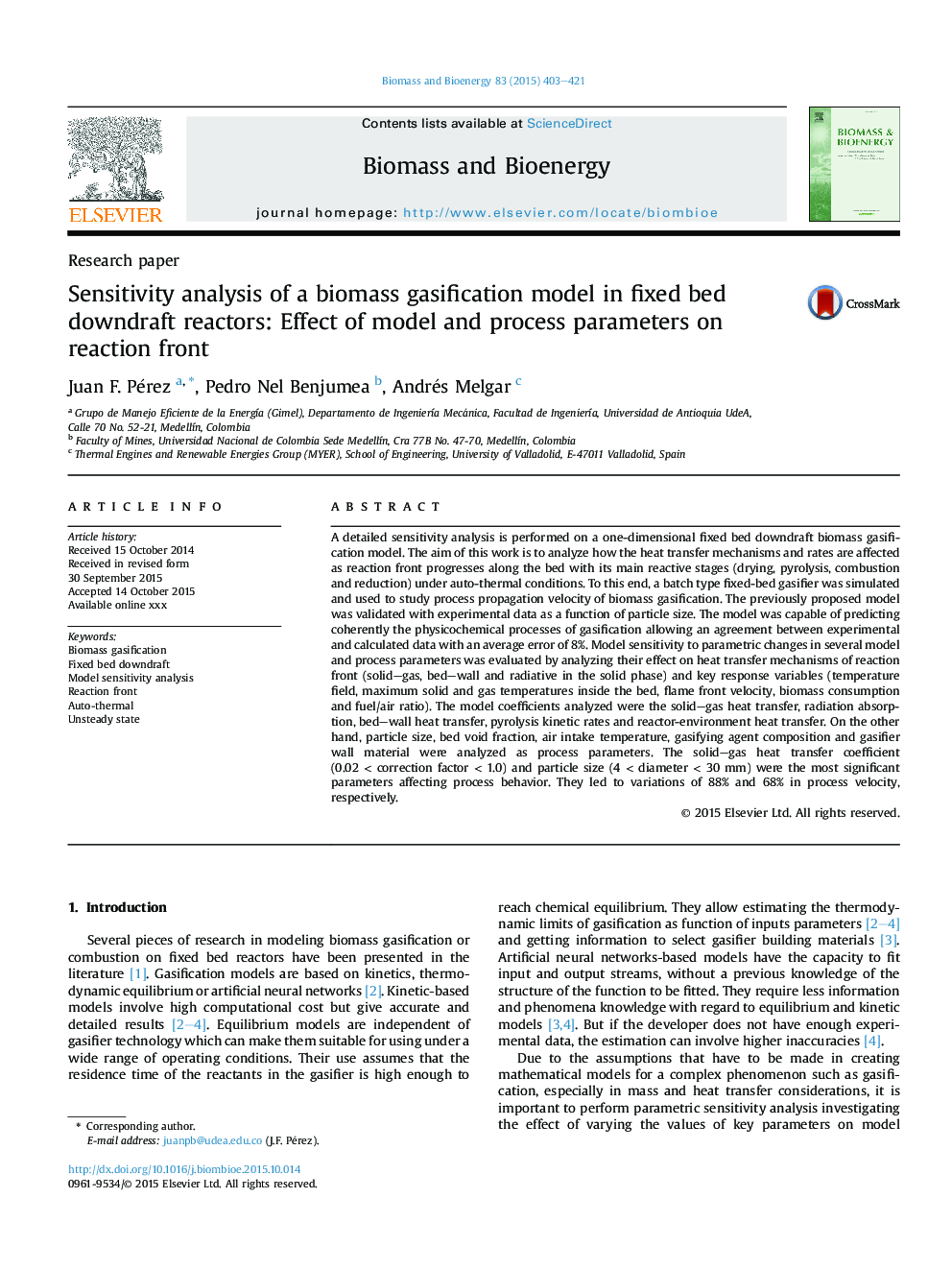| Article ID | Journal | Published Year | Pages | File Type |
|---|---|---|---|---|
| 7063709 | Biomass and Bioenergy | 2015 | 19 Pages |
Abstract
A detailed sensitivity analysis is performed on a one-dimensional fixed bed downdraft biomass gasification model. The aim of this work is to analyze how the heat transfer mechanisms and rates are affected as reaction front progresses along the bed with its main reactive stages (drying, pyrolysis, combustion and reduction) under auto-thermal conditions. To this end, a batch type fixed-bed gasifier was simulated and used to study process propagation velocity of biomass gasification. The previously proposed model was validated with experimental data as a function of particle size. The model was capable of predicting coherently the physicochemical processes of gasification allowing an agreement between experimental and calculated data with an average error of 8%. Model sensitivity to parametric changes in several model and process parameters was evaluated by analyzing their effect on heat transfer mechanisms of reaction front (solid-gas, bed-wall and radiative in the solid phase) and key response variables (temperature field, maximum solid and gas temperatures inside the bed, flame front velocity, biomass consumption and fuel/air ratio). The model coefficients analyzed were the solid-gas heat transfer, radiation absorption, bed-wall heat transfer, pyrolysis kinetic rates and reactor-environment heat transfer. On the other hand, particle size, bed void fraction, air intake temperature, gasifying agent composition and gasifier wall material were analyzed as process parameters. The solid-gas heat transfer coefficient (0.02 < correction factor < 1.0) and particle size (4 < diameter < 30 mm) were the most significant parameters affecting process behavior. They led to variations of 88% and 68% in process velocity, respectively.
Related Topics
Physical Sciences and Engineering
Chemical Engineering
Process Chemistry and Technology
Authors
Juan F. Pérez, Pedro Nel Benjumea, Andrés Melgar,
